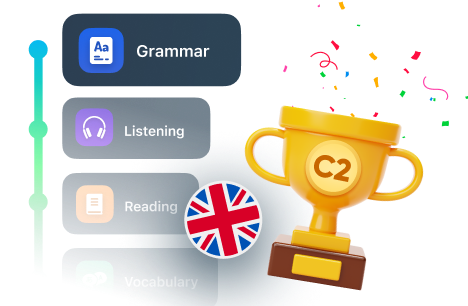
5 Tips for Making the Most of Your Language Learning Journey
Learning a new language can be difficult, especially if you don’t have any prior experience. Here are five tips to help you make the most of your language learning journey.
In today’s increasingly globalised economy, speaking more than one language has never been more important. As a bilingual or multilingual individual, you have a distinct advantage over your monolingual peers in the job market. But learning a new language can be difficult, especially if you don’t have any prior experience. Here are five tips to help you make the most of your language learning journey:
1. Why Learn a Second Language
Learning a second language has many benefits, both personal and professional. For starters, speaking multiple languages makes you more marketable in a global economy. In addition, knowing a second language can help you communicate with people from other cultures and understand their perspectives better. This is especially important for people in the business world, who often have to work with clients and colleagues from different countries.
2. How to Choose the Right Language Learning Program
When it comes to choosing the right language learning program, there are a few things you'll want to take into account. First, think about your goals for learning a new language. Do you want to be able to have basic conversations with people, or are you looking to become fluent? Once you have a goal in mind, you can start to look for programs that will help you meet it. There are a variety of language learning programs out there, from online courses to private lessons online, so take some time to explore your options and find one that's right for you.
Another important factor to consider is your budget. Language learning can be costly, so you'll want to make sure you find a program that fits into your budget. There are a number of ways to save money on language learning, so don't be discouraged if you can't afford the most expensive option.
3. Tips for Improving Your Language Skills
There are a lot of great online resources out there that can help you improve your language skills with the help of fun and interactive exercises. And if you want to practice your speaking skills, there are also plenty of online language exchange communities where you can connect with native speakers from all over the world. So what are you waiting for? Start learning that new language today!
4. The Benefits of Bilingualism
There are many benefits to being bilingual. Some of these benefits include having a greater understanding of other cultures and being better equipped to work with international clients. Bilingualism also has cognitive benefits, such as improved problem-solving skills and increased creativity.
Being bilingual gives you the ability to communicate with a wider range of people. This is especially useful in today’s globalised world, where being able to speak multiple languages is an asset in many professions. For example, if you are bilingual in Spanish and English, you can communicate with Spanish-speaking clients or customers who may not be comfortable communicating in English. In addition to being able to communicate with more people, being bilingual also allows you to better understand other cultures. When you are able to speak another language, you have a better understanding of the culture and customs associated with that language. This can help you build stronger relationships with people from other cultures and make doing business in other countries easier.
In addition to the interpersonal benefits of being bilingual, there are also cognitive benefits. Studies have shown that bilingualism can improve problem-solving skills and increase creativity. Bilingualism has also been linked to improved executive function, which is the ability to plan, organise, and multitask. These cognitive benefits are thought to be due to the fact that bilingualism requires constant switching between two languages, which leads to increased mental flexibility.
Overall, there are many benefits to being bilingual. If you are considering learning a second language, keep in mind all of the advantages that bilingualism can provide.
5. How to Use Your New Language Skills in the Workplace
When you know a foreign language, you may be wondering how to use your new skills in the workplace. There are a few ways that you can use your language skills to benefit your career.
The first way is to use your language skills as a translator. If you are bilingual or multilingual, you can offer your translation services to companies that need help translating documents or meeting minutes. You can also work as a translator for live meetings or conference calls.
Another way to use your language skills in the workplace is to become a bilingual recruiter. Many companies are looking for bilingual employees, and as a bilingual recruiter, you can help connect companies with qualified candidates who speak multiple languages.
You can also use your language skills to build relationships with clients or customers who speak a different language than you. By being able to communicate with them in their own language, you can build trust and rapport.
If you work in sales, using your language skills can help you close deals with international clients. Or if you work in customer service, you can use your language skills to resolve issues for customers who speak a different language.
There are many ways to use your new language skills in the workplace. Just be creative and think about how you can use your bilingualism or multilingualism to your advantage. You may be surprised at how valuable your language skills can be in the workplace.
Conclusion
Learning is a lifelong journey. That said, the more you learn now, the easier it will be to build on your knowledge and skill in years to come. If you are considering adding another language to your repertoire or starting from scratch with an unfamiliar one, don't hesitate any longer! With so many benefits as well as some great tools available for free online, there has never been a better time than now. We hope this article helped shed light on how useful bilingualism can be for both personal and professional development opportunities; let us know what other questions you need answering here that weren’t addressed in this blog post.


















